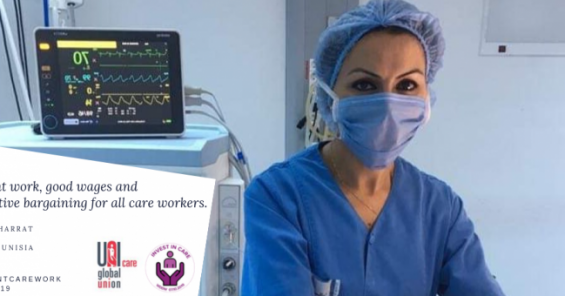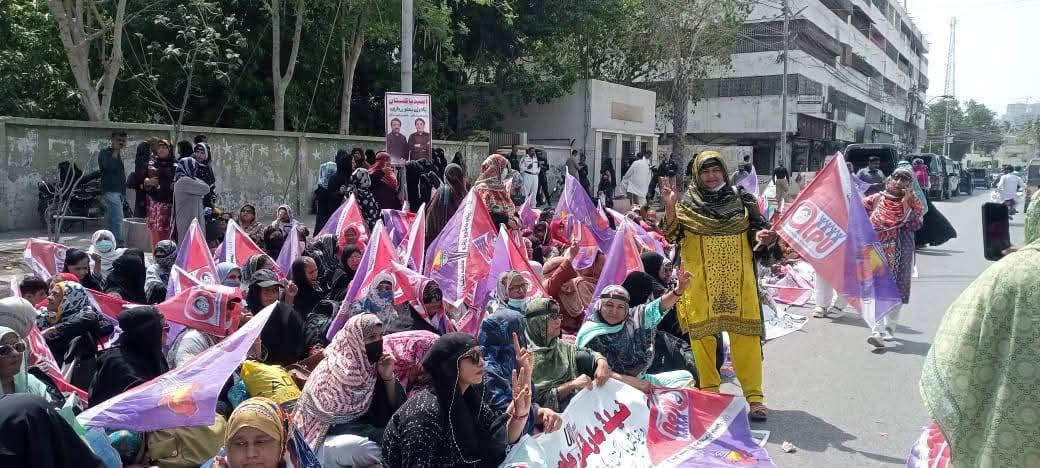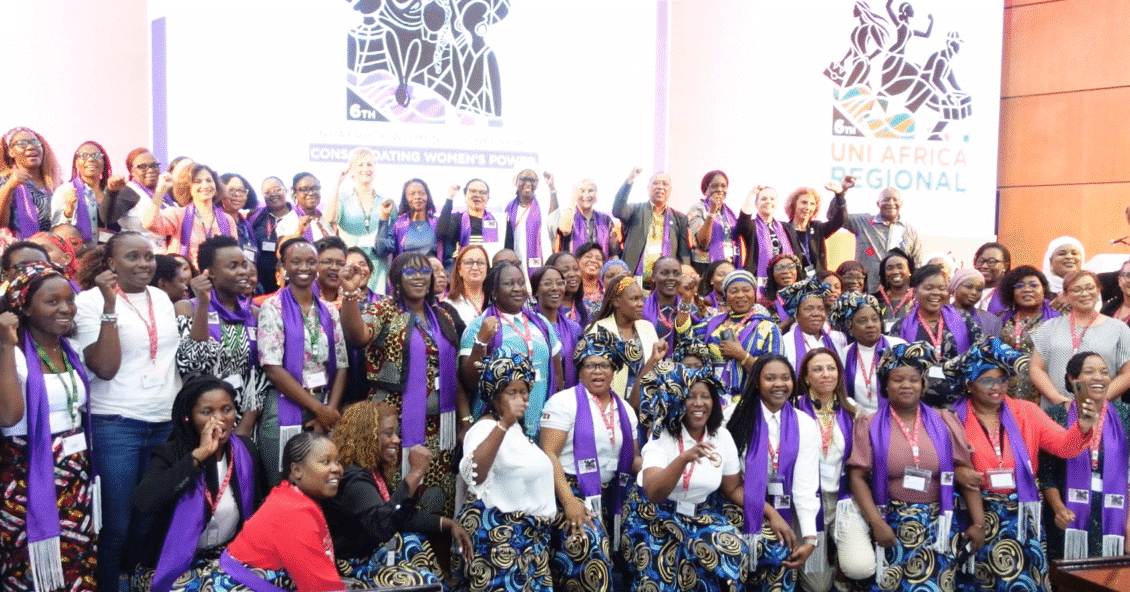On this year’s World Day of Decent Work (WDDW), UNI Global Union and the affiliates of UNICARE are joining the call for investment in the care economy and respect for the workers that sustain it.
WDDW will be marked for the twelfth time on Monday, 7 October, and this year’s theme puts pressure on national governments and multinational corporations to invest in care by tackling the growing challenges facing workers and patients.
UNI is pushing for decent working conditions, good wages, and collective bargaining for all care workers, and wants employers to provide adequate staffing and training to ensure that care workers can do their jobs safely.
“We’re taking the opportunity of this day to shine a light on the corporatisation of the care industry and what that means for workers and for patients,” UNI General Secretary Christy Hoffman said. “We want the major players in this industry, multinationals like Fresenius and ORPEA, to guarantee that all care workers, no matter their profession or employer, are treated with the dignity and respect they deserve.”
Head of UNICARE Adrian Durtschi said: “Homecare is the fastest growing sector in the global economy, and we have to make sure the people working in it, who are looking after the most vulnerable in our societies, are able to secure decent conditions through collective bargaining and push back against employers’ race to the bottom.”
Rallies and demonstrations are being organised by dozens of unions all over the world—such as E tū Homecare workers in New Zealand, by the RMS workers in India, and by the UNIPHIN in hospitals in Nepal.
Meanwhile in Africa, the UGTT will hold actions at several hospitals and nursing homes. In Europe, ORPEA workers are marking the day through union solidarity actions in Poland and Czechia. Vida in Austria, SETCA in Belgium, and CC.OO in Spain will publicly highlight their long-term care campaigns.
President of UNICARE Miguel Zubieta from FATSA will join with hundreds of homecare workers demonstrating in Argentina and with thousands more on livestream in Peru, Chile, and Uruguay. He will call for dignity, training, and collective bargaining rights for all workers across the sector while spotlighting the extreme emotional and physical demands of the job.
Another theme of the day is that making care work, decent work would further gender equality. Work in the care sector, performed mostly by women, remains significantly undervalued and characterised by poor pay and working conditions.
Find out about the ORPEA Solidarity Network, created to help identify workers’ common issues across Orpea, coordinate solidarity and campaign for a global framework agreement.
Find out more about the Fresenius Global Union Alliance supported by UNI, PSI and IndustriALL, formed to negotiate a global framework agreement with Fresenius to ensure that it respects fundamental rights of all employees in its operations worldwide.


